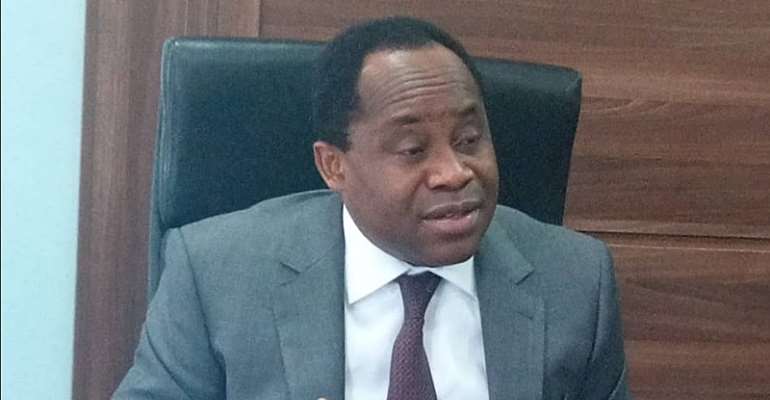Nigeria Would Have Suffered If We Had Not Invested In Healthcare - Nigeria Sovereign Investment Authority (nsia) Boss

Nigeria would have experienced more health challenges particularly during the outbreak of the Coronavirus pandemic if the Nigeria Sovereign Investment Authority had not invested in the nation’s health care system.
The Managing Director of the NSIA, Uche Orji said this during an interview with EuroMoney Magazine.
In response to Covid-19, the NSIA had partnered with Global Citizen a not-for profit group to form the Nigeria Solidarity Support Fund.
Separately, the NSIA acquired and distributed oxygen concentrators to the 21 teaching hospital as part of corporate social responsibility; in addition to staffing support to the Presidential taskforce on Covid-19.
The Authority had also operationalised the NSIA-Kano Diagnostic Centre; the NSIA-Umuahia Diagnostic Centre and Commissioned Administrative and Training centre for the NSIA-LUTH Cancer Centre.
The NSIA have also commenced plan to roll out additional healthcare projects across the country, with plans underway to partner with University College London Consult to develop a pharmaceutical investment strategy with plan to develop active direct investments in the 2021 fiscal period.
Speaking on the health care intervention of the Authority, Orji recalled how he experienced pushbacks when he initially suggested the idea to invest in Nigeria’s health sector.
He said the pushback on the idea came because the general believe was that investing in health care does not guarantee huge returns on investment.
However, the NSIA boss said he understood the fact that the absence of hospitals was certainly a problem that needed to be tackled to have a sustainable country upon which development could be built.
He said, “Everyone was like: ‘Are you crazy? We’re never going to make money out of healthcare.’
Sure. But we have the opportunity to define the return expectations of social infrastructure.
“Sure, we could make 20 per cent return on hard, power investments and only five per cent to seven per cent in social infrastructure, but if you don’t have that [social infrastructure] built, you will never have a sustainable industry in your country and you will never have a sustainable country to begin with.”
He said the decision to invest in health care has proven to be beneficial during the Covid crisis as healthcare was the first sector to be hit by the virus worldwide.
He added, “Nigeria suffered too and suffers still. But it would have suffered a lot more without the projects the fund had backed.
“Two diagnostic centres were developed during 2020 through direct investment from the fund and have treated over 43,000 patients between then to date.
“A separate cancer centre, commissioned in 2019, had treated over 4,000 patients by the end of 2020. NSIA now has a medium-term target of 20 centres, and a pipeline of diagnostic centres, multi-speciality hospitals and pharmaceutical manufacturing.
“Soft infrastructure – healthcare, education – is very important for us as a country and we’re willing to accept much lower returns than we’ll take from, say, power.”
